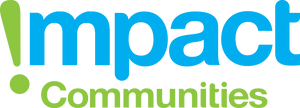Did you know that it’s relatively easy for your schools and communities to get involved in the nationwide efforts to eradicate the opioid crisis?
Prevention is the name of the game and you can help us lead the charge here in North Texas. First, some background:
Dr. Jerome Adams, former health commissioner in Indiana, was confirmed last week as our nation's 20th Surgeon General. We hope his views on prevention are as strong and dedicated as the SG he succeeds, Dr. Vivek Murthy.
Dr. Adams appears to ready to kick this drug crisis to the curb. He has three children, ages 7, 11 and 13. He has a family tie to addiction; his brother has struggled with substance use disorder.
Dr. Adams sees the whole picture, writing in a statement that he intends to make “wellness and community and employer engagement a centerpiece of my agenda." In a CNN article, he said, “The opioid epidemic, obesity, healthcare access and cost will not be successfully tackled if the nation continues to focus on handling these problems only ‘after they've taken hold.’”
Once all the pomp around Dr. Adams appointment dies down, we hope that he’ll embrace his predecessor’s ideas and plans around prevention as described in Chapter 3 in Facing Addiction in America.
Last year, former SG Dr. Murthy released a groundbreaking report on Alcohol, Drugs, and Health. It contains an entire chapter titled “Prevention Programs and Policies.”
What a relief to know that the federal government understands the critical need for prevention in the substance use disorder mix. And there is scientific proof that prevention works!
“Evidence-based prevention interventions, carried out before the need for treatment, are critical because they can delay early use and stop the progression from use to problematic use or to a substance use disorder (including its severest form, addiction), all of which are associated with costly individual, social and public health consequences,” the report reads.
You can read more in the report here.
We believe that prevention work is a natural fit with kids, families and communities. Our friends at the national non-profit Facing Addiction agree. That organization has a brand new Community Convening Guide (We’re planning to put it into practice later this year.) which points out that “addiction is often an adolescent onset illness.”
The guide continues, “A 2011 study showed that 9 out of 10 adults with a substance use disorder began using before the age of 18. This fact has huge implications for prevention and early intervention: if we can delay the onset of heavy substance use among young people, we can avoid some of the long-term social and public health impacts of addiction.”
The need for prevention tactics in schools and communities is palpable. If you’d like more information about how you can get involved, please send me an email or call me at:
Our kids are worth fighting for. Together, we can make a difference.

